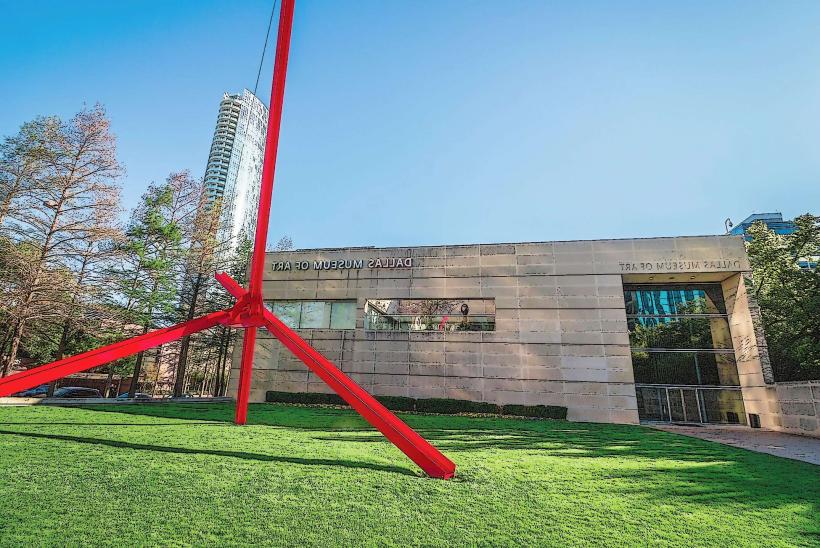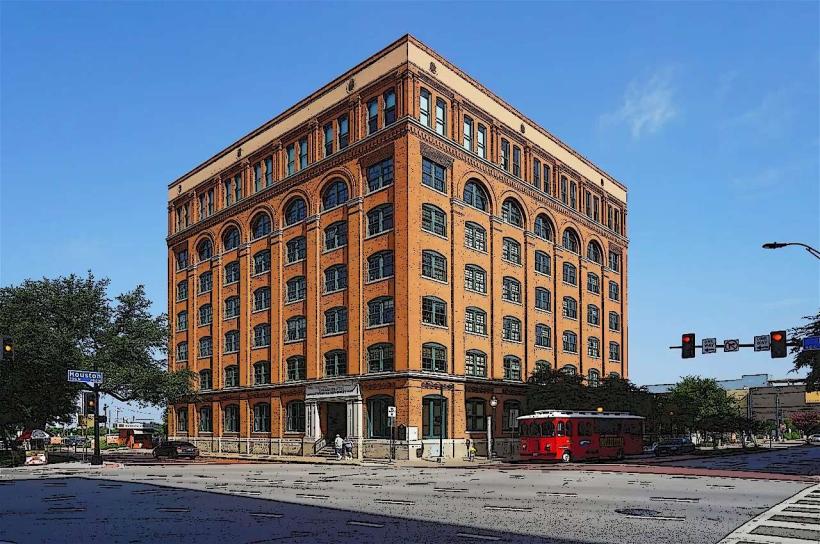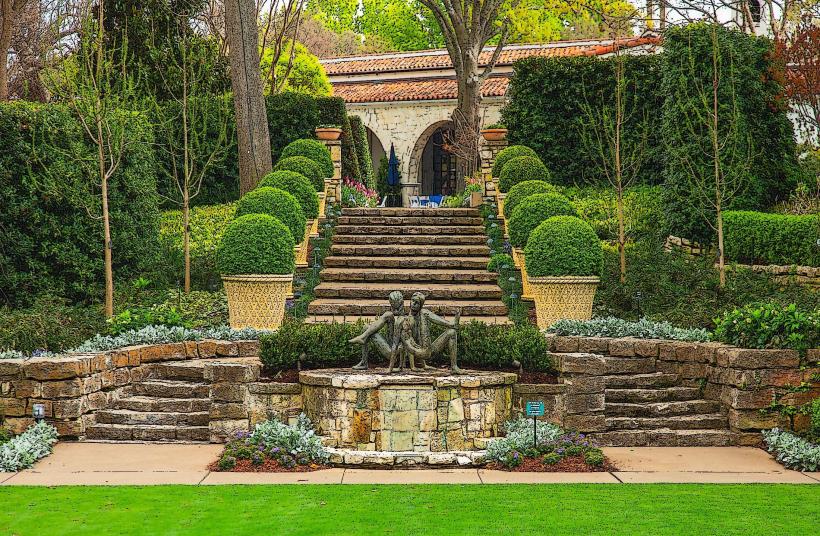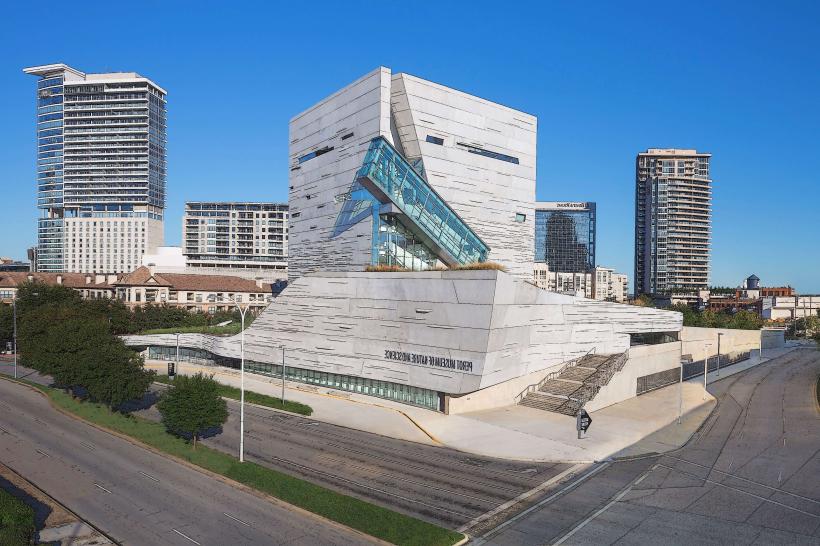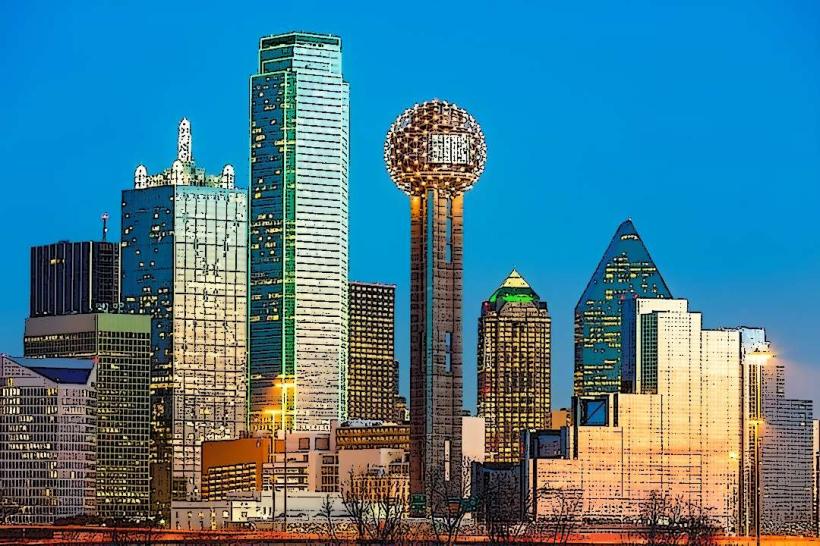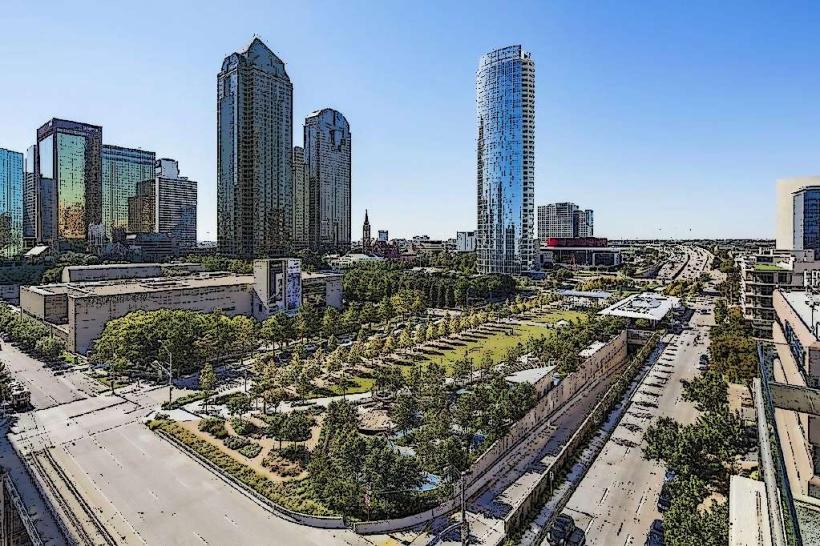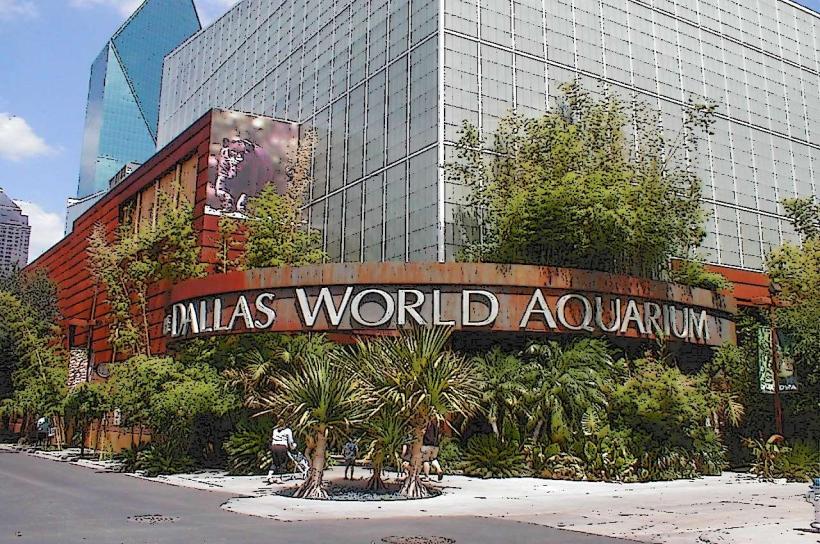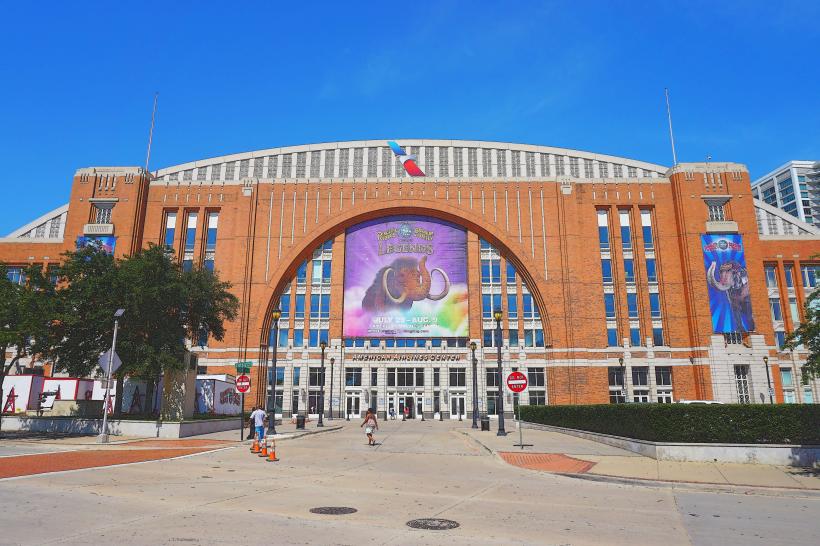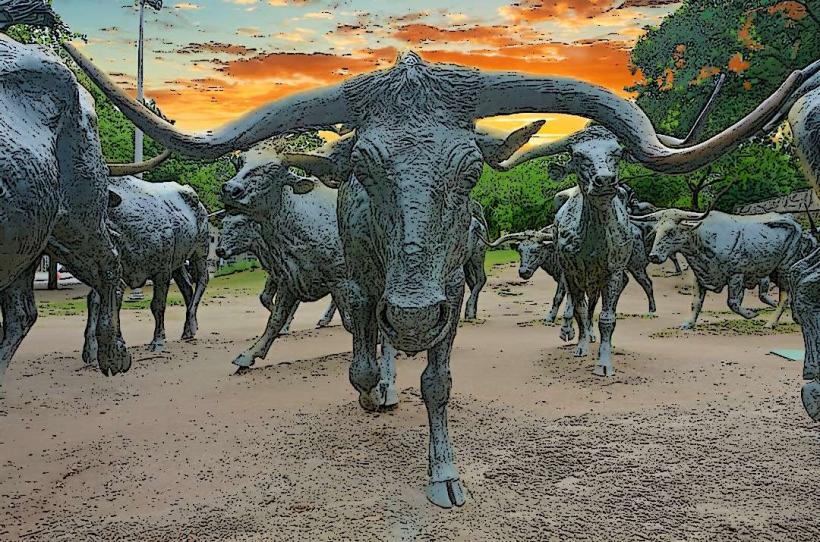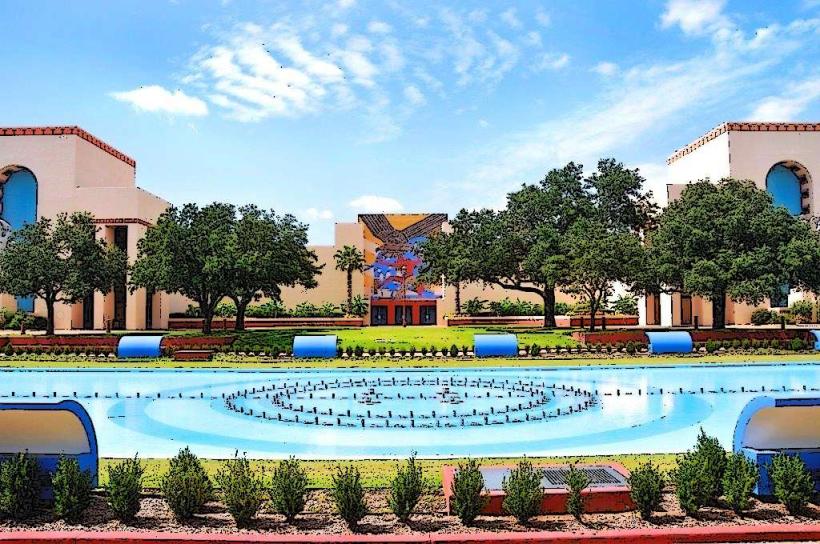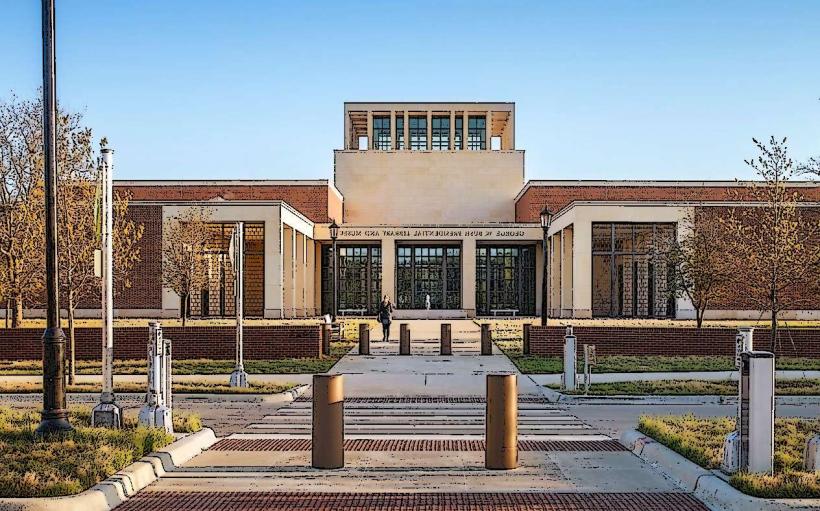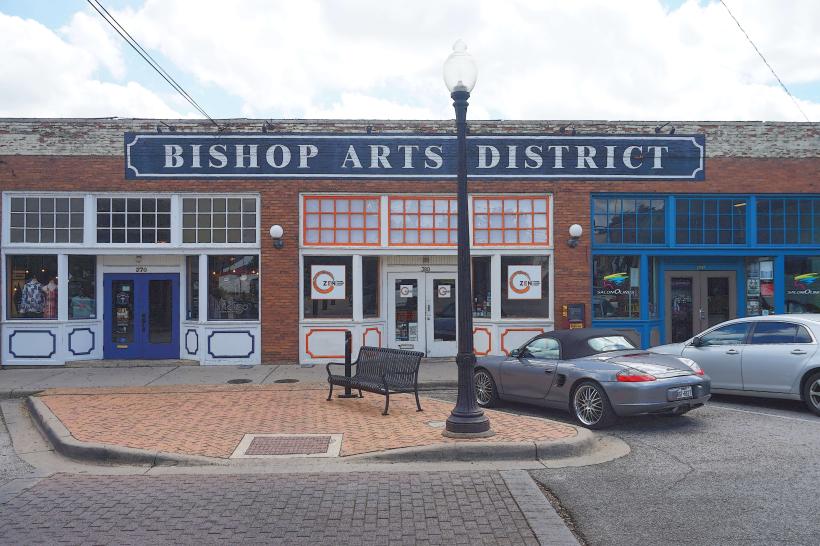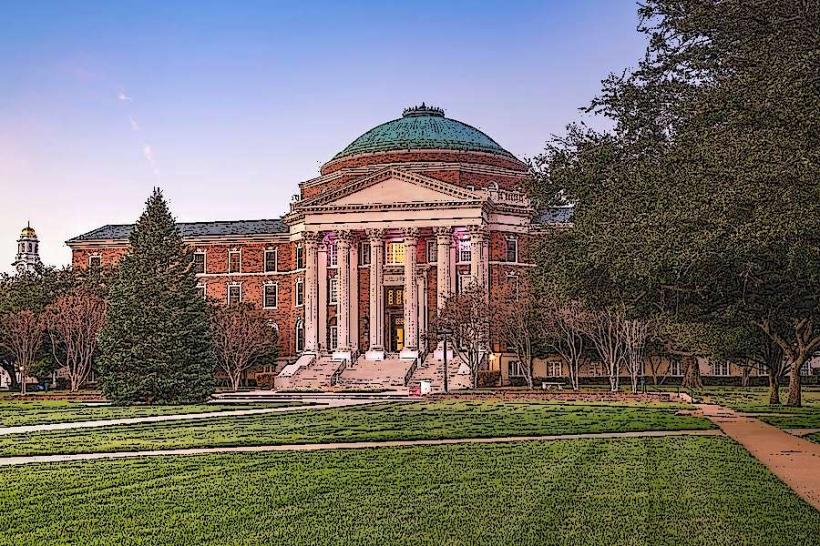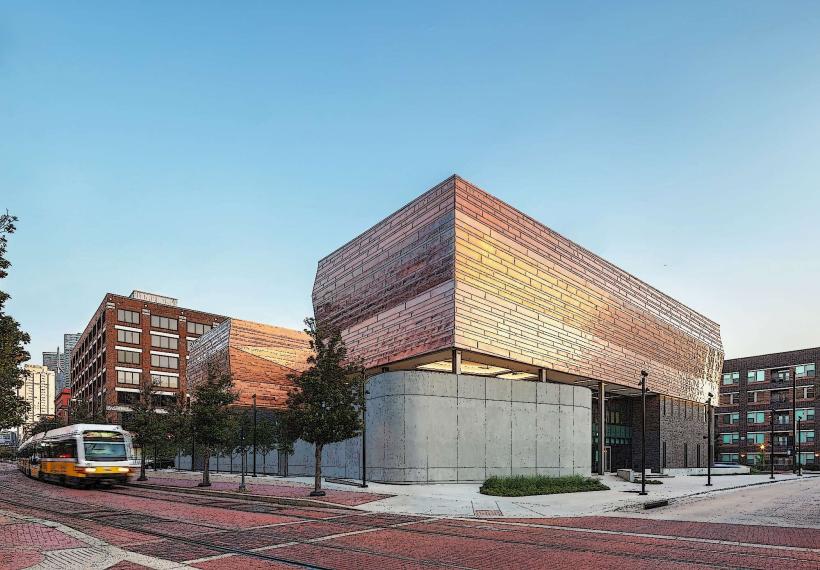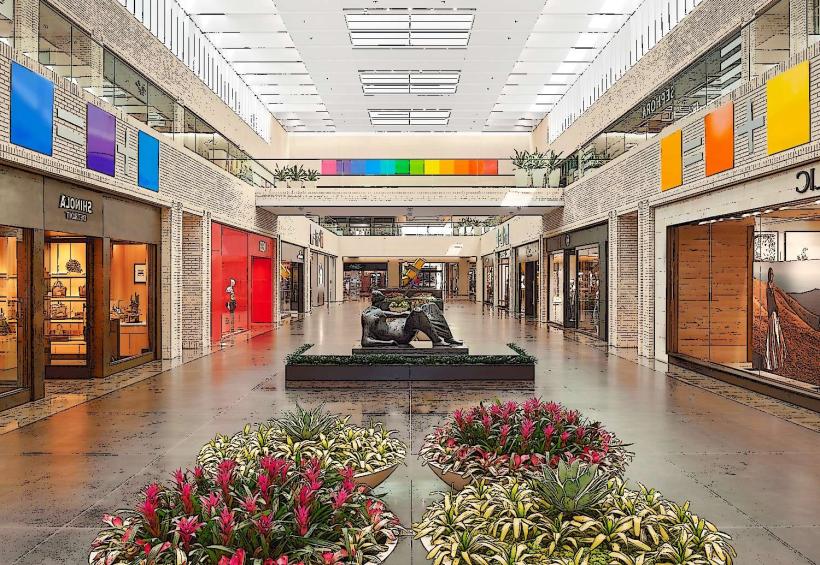Information
City: DallasCountry: USA Texas
Continent: North America
Dallas, USA Texas, North America
Dallas is a major city in the state of Texas and serves as a cultural and economic hub in the region. It is known for its modern urban landscape, rich history, and significant contributions to the energy, technology, and finance sectors. Here's a detailed overview of Dallas, covering various aspects of its economy, culture, landmarks, and more:
1. Economy
Dallas has a diverse and thriving economy, with key sectors ranging from finance and technology to energy and healthcare.
Business and Finance: Dallas is one of the top financial centers in the United States, home to numerous banks, investment firms, and corporate headquarters. The city is a hub for both national and international companies, with major firms like AT&T, Southwest Airlines, and Texas Instruments having their headquarters there.
Technology: The city has grown into a significant tech hub in recent years. The “Silicon Prairie” region in North Dallas attracts startups and large tech companies alike, particularly in sectors such as cybersecurity, software development, and telecommunications.
Energy: While Houston may be the dominant city in Texas for the energy industry, Dallas also has a strong presence in energy, particularly in oil and natural gas. The city is home to large energy companies, such as ExxonMobil, and plays a major role in the development of renewable energy technologies.
Healthcare and Biotech: Dallas is known for its medical facilities, with institutions like the University of Texas Southwestern Medical Center and Parkland Memorial Hospital being key players in healthcare and medical research.
Manufacturing and Distribution: The city has a strong manufacturing base, including the production of electronics, chemicals, and food products. Its central location makes Dallas a prime location for distribution centers serving the broader South and Southwest regions.
2. Culture and Diversity
Dallas is a culturally rich and diverse city with a vibrant arts scene, music culture, and culinary landscape.
Arts and Museums: Dallas boasts a thriving arts community. The Dallas Arts District, the largest urban arts district in the United States, is home to major institutions like the Dallas Museum of Art, the Nasher Sculpture Center, and the Winspear Opera House. The city also has many smaller galleries and performance spaces that showcase local talent.
Theatre and Music: Dallas has a strong theatre scene, with institutions such as the Dallas Theater Center and the AT&T Performing Arts Center offering performances ranging from Broadway shows to local productions. The city is also a key player in the country and blues music scenes, with historic venues like the Kessler Theater hosting live performances.
Cuisine: Dallas is a food lover’s city, offering a wide range of cuisines, from classic Texas barbecue to international dishes. The city is known for its Tex-Mex and Southwestern cuisine but also has a thriving fine dining scene, with world-class restaurants and chefs making their mark.
Festivals and Events: Dallas hosts several major cultural festivals, such as the Dallas International Film Festival, the State Fair of Texas (one of the largest and oldest fairs in the U.S.), and various music festivals. These events highlight the city’s diverse cultural heritage and appeal to both residents and visitors.
3. History
Dallas has a rich history, particularly in the areas of commerce, politics, and culture.
Early History: Dallas was founded in 1841 and quickly became a key player in the state’s development due to its central location and role in the cotton trade. The city's growth was also fueled by the arrival of railroads, which connected it to the rest of the country.
JFK Assassination: Dallas is forever associated with the assassination of President John F. Kennedy, which took place on November 22, 1963, when he was shot while riding in a motorcade through Dealey Plaza. The event is memorialized at the Sixth Floor Museum at Dealey Plaza, where visitors can learn about the tragedy and its historical context.
Civil Rights Movement: Dallas was a significant site during the Civil Rights Movement, with protests and political activism contributing to the broader struggle for racial equality. Today, the city has a variety of historical markers and museums that tell the story of this important chapter in American history.
4. Weather
Dallas has a humid subtropical climate, characterized by hot summers and mild winters, with occasional severe weather events.
Summers: Summers are long, hot, and often sweltering, with temperatures frequently exceeding 90°F (32°C). The humidity can make the heat feel more intense, but many residents find relief in the city’s air-conditioned homes, offices, and shopping centers.
Winters: Winters are mild compared to other parts of the U.S., with average temperatures rarely dipping below freezing. Snow is rare but can occur once in a while, typically causing disruptions due to the city’s limited snow removal infrastructure.
Thunderstorms: Dallas is located in “Tornado Alley” and is prone to severe thunderstorms, particularly in the spring. These storms can sometimes produce tornadoes, hail, and flash floods.
5. Transportation
Dallas is a well-connected city with a robust transportation infrastructure that makes getting around easy, though traffic congestion is an issue.
Roadways and Highways: Dallas is known for its extensive network of highways, including Interstates 20, 30, 35, and 45, which crisscross the metro area. The city has grown outward, leading to heavy traffic during peak hours.
Public Transit: The Dallas Area Rapid Transit (DART) system provides bus and light rail services across the city and into surrounding suburbs. While public transportation is widely available, the city is primarily car-dependent, with many people relying on personal vehicles for daily commuting.
Dallas/Fort Worth International Airport (DFW): Located between Dallas and Fort Worth, DFW is one of the busiest airports in the world. It serves as a major hub for both domestic and international flights, making Dallas an important gateway for travelers.
Dallas Love Field: This smaller airport, located closer to downtown, is primarily used for domestic flights and is the headquarters of Southwest Airlines.
6. Sports
Dallas is a major sports city, home to several top-tier professional sports teams and venues.
Dallas Cowboys (NFL): The Dallas Cowboys are one of the most famous football teams in the world, with a storied history, loyal fanbase, and iconic stadium, AT&T Stadium. The team’s “America’s Team” moniker has made them a cultural phenomenon.
Dallas Mavericks (NBA): The Dallas Mavericks are the city’s professional basketball team, known for their success in the NBA, including winning the NBA championship in 2011. The team has had notable players such as Dirk Nowitzki.
Texas Rangers (MLB): The city’s Major League Baseball team, the Texas Rangers, plays at Globe Life Field in Arlington, a short drive from Dallas.
Dallas Stars (NHL): The Dallas Stars represent the city in the National Hockey League and have seen considerable success, including winning the Stanley Cup in 1999.
FC Dallas (MLS): Dallas is also home to FC Dallas, a Major League Soccer team that plays at Toyota Stadium in Frisco, a northern suburb of the city.
7. Landmarks and Attractions
Dallas has many iconic landmarks and attractions, blending modern architecture with historical sites.
Dealey Plaza: A historically significant area, Dealey Plaza is where President John F. Kennedy was assassinated. The Sixth Floor Museum offers a detailed account of the event, along with exhibits on Kennedy's life and legacy.
Reunion Tower: This iconic Dallas landmark offers panoramic views of the city from its observation deck. The rotating restaurant at the top is a popular spot for visitors.
Dallas Arboretum and Botanical Garden: This 66-acre garden is a lush escape from the city’s urban environment, featuring seasonal floral displays, beautiful landscapes, and tranquil walking paths.
Klyde Warren Park: Built over a freeway, this 5-acre urban park provides green space in the heart of the city, with walking trails, playgrounds, and food trucks.
Perot Museum of Nature and Science: A family-friendly museum with interactive exhibits on science, geology, and the natural world, it is one of Dallas' top cultural attractions.
Dallas is a dynamic and rapidly growing city that combines modern innovation with a rich history, diverse culture, and a broad array of opportunities for residents and visitors. Whether it’s exploring the city’s cultural landmarks, attending a sports game, or engaging with the thriving business community, Dallas offers something for everyone.

